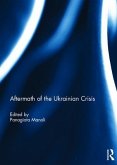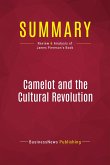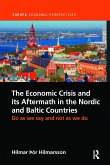"After more than two years, what has remained of the Gezi Park protests?" "Is Gezi`s critique of political power still valid?" "What has changed after Gezi?" These valid questions linger; not properly answered, not yet properly discussed. Perhaps Gezi`s enduring effects and legacy can be discovered in the resistances, dissents and practices of political critique that have been created since June 2013. In this book, fourteen authors discuss and elaborate on such questions from both political and quotidian perspectives.
Critique of the power of the multitude, the anthropology and ethnography of resistance, the causes, effects and continuity of the Gezi Park protests are among the issues covered in "Another Brick in the Barricade: The Gezi Resistance and Its Aftermath." This book does not offer all-explaining narratives of singular objective truths. It does not represent the whole of the multitude. A wide perspective of analyses ranging from political science to sociology, psychology to anthropology, economic to media studies consider Gezi resistance not only as an exceptional state of resistance, but also in terms of the new possibilities it offers for political critique. These possibilities constitute the fieldwork for academic studies, which in turn become part of social struggle.
This volume seeks to make diversity its distinguishing aspect. The phenomena it considers - Gezi and its aftermath - requires this. The interdisciplinary approach and variety of discussions in the volume provide not just critique about power and dominance in Turkey, but also inspire resistance against domination and power around the world.
Critique of the power of the multitude, the anthropology and ethnography of resistance, the causes, effects and continuity of the Gezi Park protests are among the issues covered in "Another Brick in the Barricade: The Gezi Resistance and Its Aftermath." This book does not offer all-explaining narratives of singular objective truths. It does not represent the whole of the multitude. A wide perspective of analyses ranging from political science to sociology, psychology to anthropology, economic to media studies consider Gezi resistance not only as an exceptional state of resistance, but also in terms of the new possibilities it offers for political critique. These possibilities constitute the fieldwork for academic studies, which in turn become part of social struggle.
This volume seeks to make diversity its distinguishing aspect. The phenomena it considers - Gezi and its aftermath - requires this. The interdisciplinary approach and variety of discussions in the volume provide not just critique about power and dominance in Turkey, but also inspire resistance against domination and power around the world.








